9. Last Year At Marienbad (Alain Resnais, 1961)
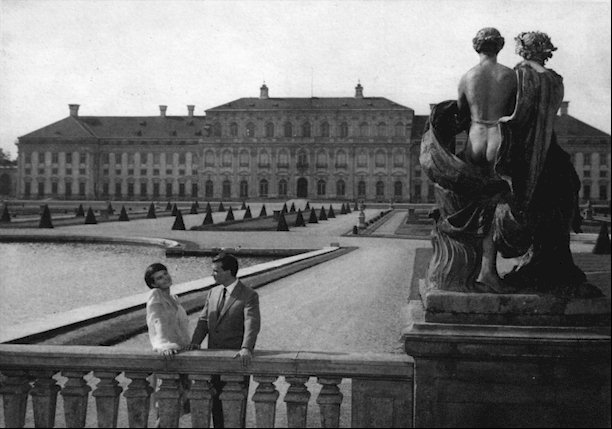
Usually if one talks about the French New Wave, the first names, that fall are: Godard, Truffaut, Rohmer, Chabrol and sometimes Rivette. While this was the care group of Cahiers writers, just naming them makes the French New Wave look a bit less inventive and exciting then it really was.
One of the most playful and radical filmmakers of the French New Wave was Alain Resnais, who especially experimented with fracturing the narrative. Films like “Hiroshima Mon Amour”, “Muriel” and “Last Year At Marienbad” take narratives apart and present them as fragments. Of these films “Marienbad” might be the most mysterious one. Resnais doesn’t only play with time this time, but instead gives us a narrative puzzle.
The main characters don’t have names, they are merely letters, the entire plot relies on an event that might or might not have happened in the past, and it’s impossible to tell how much time is passing during the film. Watching “Last Year At Marienbad” is partaking in an experiment, letting yourself in for a game. With the right set of mind, it’s a real joy.
10. Raising Arizona (Coen Brothers, 1987)
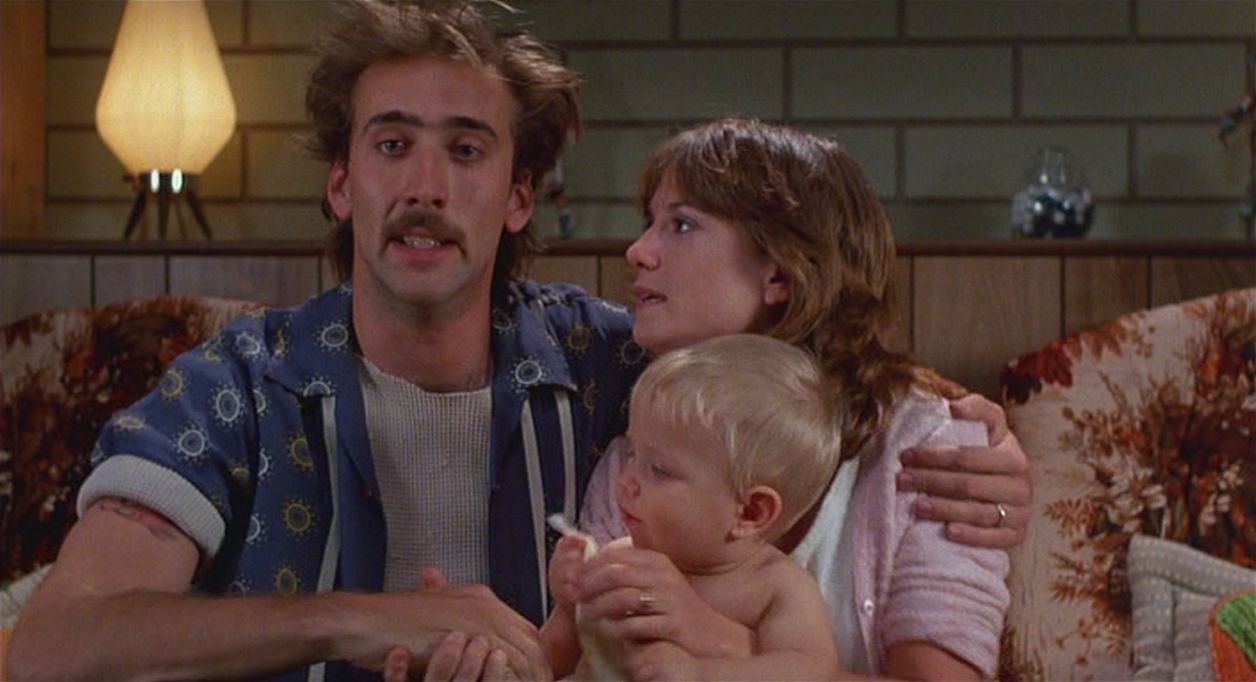
Whenever the Coen Brothers make comedies, they turn out a film so mad and quirky as only little directors can nowadays. Their humor is often quite dark (A Serious Man), or completely absurd (Burn After Reading), but the probably most warmly funny and heartfelt film they’Ve ever mad is 1987s “Raising Arizona”.
That doesn’t mean, that the film isn’t absolutely mad (it is), but there is a sweetness and naiveté about the film, that even makes the plot about kidnapping a baby seem sweet and the characters that partake in it are lovable. Nicolas Cage gives the probably funniest performance in his career and everything, from the insane camera work to the hilariously poetic off-text are absolutely spot on.
11. The Gold Rush (Charles Chaplin, 1925)
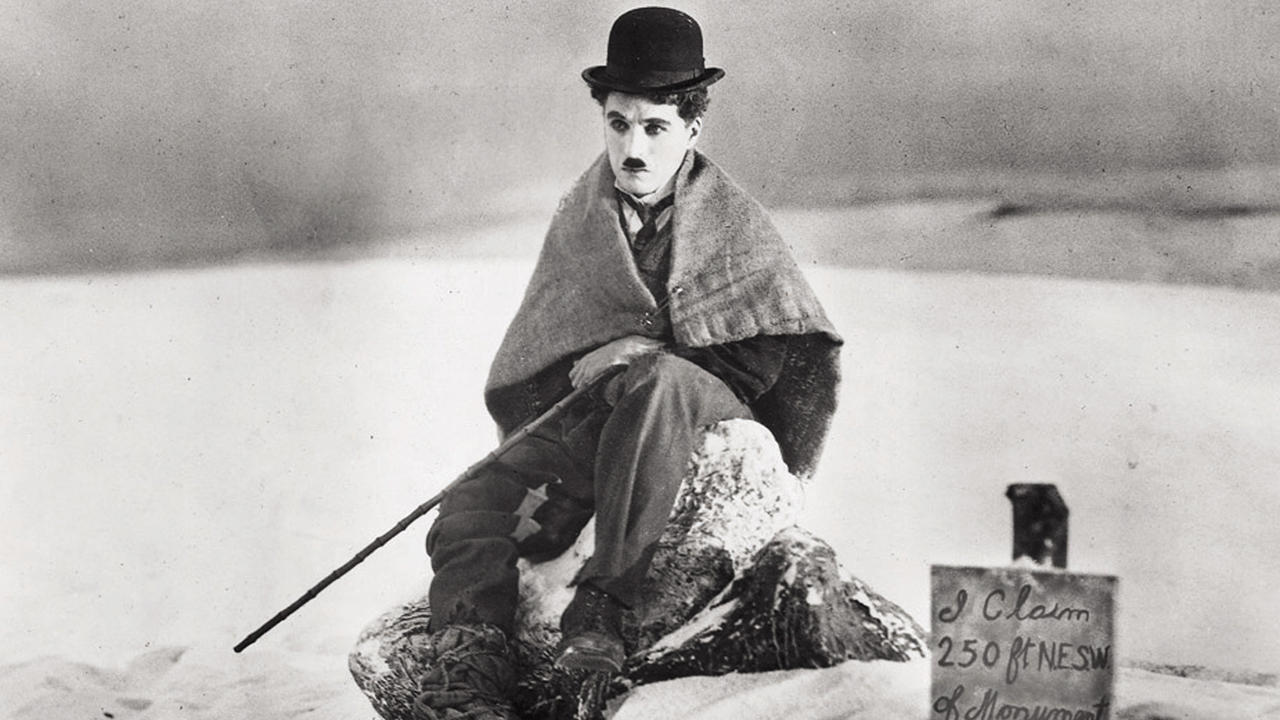
Charlie Chaplin is one of those names, where mentioning his name only will trigger memories, and connotations, that are precious to each cinephile. There is so much to say about the man, his directing, his legendary onscreen persona, his comedic timing and the warmth of his films.
If you haven’t ever seen a Chaplin film, don’t even finish reading this list. Just get up and really watch any of his films. They’re all great. So why “The Gold Rush”? Well first of all it fits the criterion set for this list, but that’s not the only reason. It’s a great film, with lots of laughs, heartfelt moments and Chaplin great as always.
Yet it also has one of the most joyous moments in cinema history. Chaplin sitting at the table uses two forks, to perform the now legendary “Dance Of The Rolls”. Seen once, it’s an unforgettable moment f cinema and already worth seeing an otherwise also excellent film.
12. Prince Avalanche (David Gordon Green, 2013)
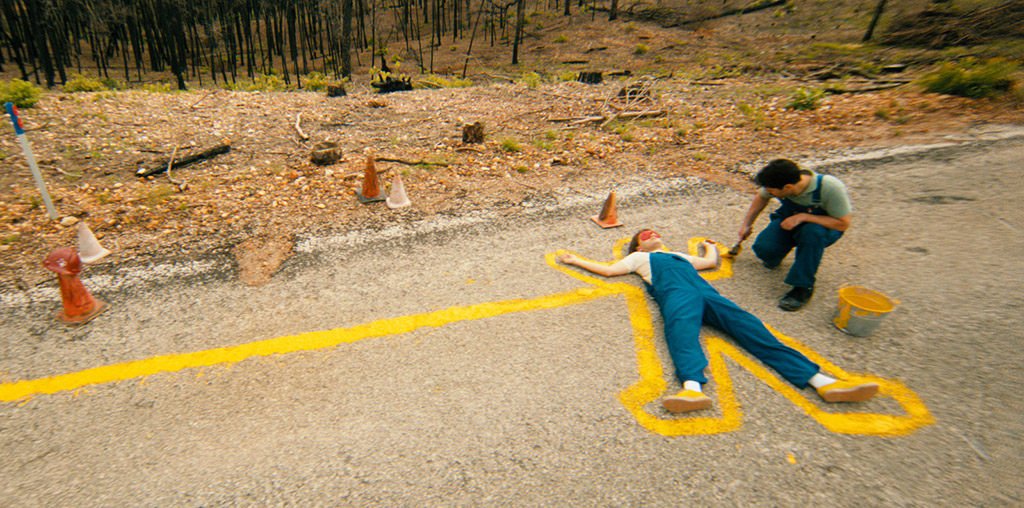
In the early 2000s mentioning the name David Gordon Green would get cinephiles excited. Thinking of films like “George Washington” he would be likened to Terrence Malick and was counted as one of the big hopes for cinema.
Nowadays though the situation is wildly different: After films like “Your Highness” and “The Sitter” mentioning Green’s name is often met with a disappointed sigh. Yet in the last years, he has been doing more interesting films again, the best of the bunch being 2013s “Prince Avalanche”.
Green takes his newly gained comedic elements, but uses them for a more introspective and minimalistic comedy, infusing the films with a lot of atmosphere with the help of a great soundtrack by Explosions In The Sky and David Wingo. The film won him a directing prize at Berlin and is hopefully the start of something like a renaissance for Green.
13. The Happiest Day In The Life Of Olli Mäki (Juho Kuosmanen, 2016)

“The Happiest Day In The Life Of Olli Mäki” won the Un Certain Regard prize in Cannes this year. It’s a Finnish black & white film about a boxer, who challenged Davey Moore for the world title. Knowing the films of Kaurismäki and their humor, one could expect a kind of cynical film about boxing.
Yet this is not what this film is. Instead it’s a wonderfully sweet movie, that in the end is much more about love, than it is about boxing. The two lead actors are absolutely charming, as is the film. It’s also wonderfully shot and mostly feels like it could be a New Wave film from the 60s (at least concerning it’s aesthetics).
14. Punch-Drunk-Love (Paul Thomas Anderson, 2002)
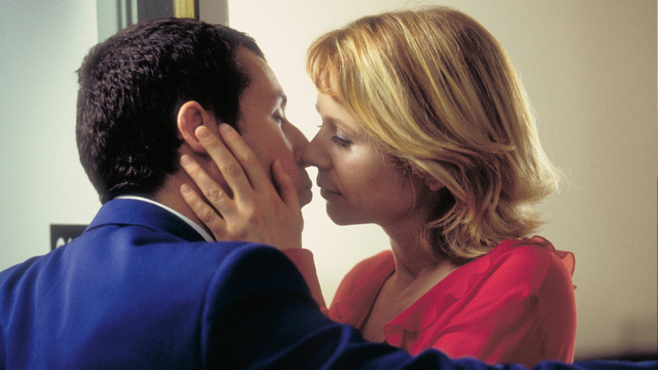
“Punch-Drunk Love” might just be Paul Thomas Anderson’s strangest film. Foreshadowed only by a joke (he stated at Cannes, that he wanted to do an Adam Sandler comedy), “Punch-Drunk Love” surprised everyone, who knew the director’s work when it was released in 2002.
Up to then Anderson had made ensemble pieces mostly, that seemed inspired by Robert Altman’s films. After that he made mostly films about the relationships between two men. None of these themes are in “Punch-Drunk Love” Instead it is a love story about a man, who seems to have anger issues and the woman he falls in love with.
While it surely is a sweet romance, the film feels too weird and off to just call it that. Sandler’s character is a darker version of his usual awkward role and Anderson’s direction lights he film unusually, moves the camera unusually and makes the film sound different from anything else really.
It’s an oddity to behold and a significant film, because with it Paul Thomas Anderson finally became his own, and has ever since been making movies, that are hard to compare with others.
15. Annie Hall (Woody Allen, 1977)
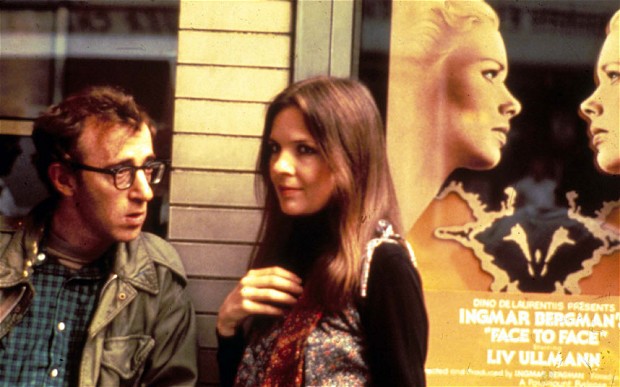
When writing this list, the biggest surprise was that Woody Allen’s most acclaimed film “Annie Hall” was actually only longer than 95 minutes.
It’s so filled with memorable moments (the opening joke, the subtitled conversation, the 4th wall break in the cinema) and also has a wonderfully told story, so it seems somewhat crazy to think, that all of this is achieved in such a short time. Especially considering how much longer most movies nowadays are (many of which have much less going on).
16. Wild Strawberries (Ingmar Bergman, 1957)

The great Ingmar Bergman is one of those names so loaded with anticipation, that starting to watch his films can be intimidating. What to expect from one of cinema’s greatest directors (if not the greatest director) of all time? Well that depends on where you start. While a film like “Persona” might be an intimidating start, why not try one of his earlier masterpieces?
“Wild Strawberries” was released in 1957 and is a moving and sad tale about an old college professor coming to terms with the life he has lived. It’s essentially a road movie, and though it has it’s fair share of tragedy in the end “Wild Strawberries” is a warm and gentle film. It’s about coming to terms with who you are and the choices you’ve made in this life.
17. Love & Death (Woody Allen, 1975)
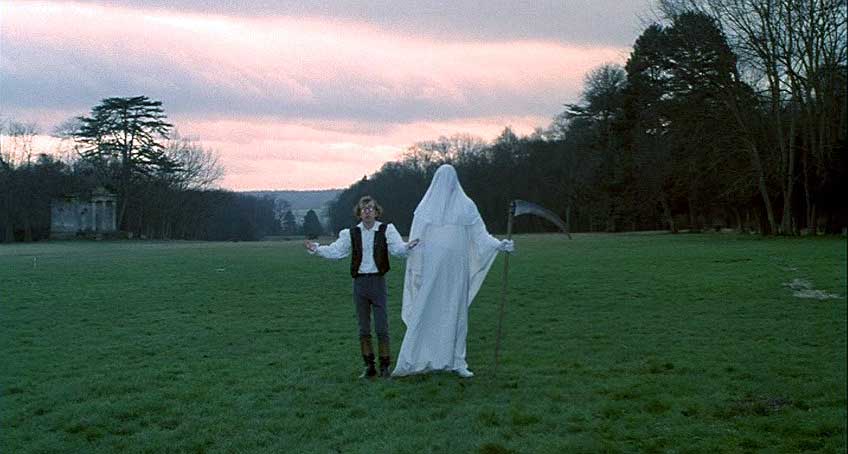
“Love & Death” might be the funniest film Woody Allen ever made and that’s saying quite a lot in a career spanning almost 50 years of directing films. Before his period of more mature films Woody Allen made a number of films in the early 70s, that were extremely goofy. Films like “Bananas” or “Sleeper” already showcased the immense comedic talent of Allen, but it was “Love & Death” that really shone.
The film takes a shot at the Russia known from books like “War & Peace” , but places Allen in the middle of events, playing his usual neurotic self. What ensues are jokes typical for Allen: philosophical banter, rambling and a good amount of slapstick. The movie is hilarious from start to finish , and especially a sequence featuring an Angel will make you laugh tears.